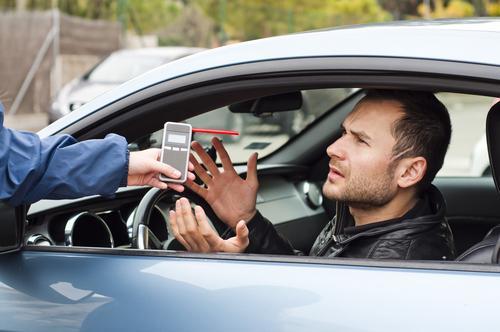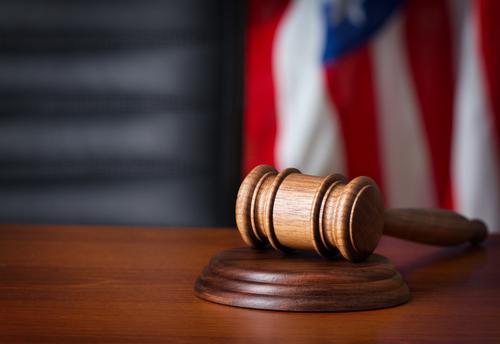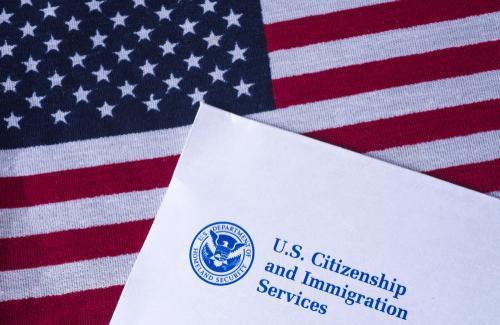Recent Blog Posts
What Role Does Cell Phone Evidence Play in Criminal Cases?
 Technology is a common and often unavoidable presence in today’s world. Think about your own life; how often do you use your cell phone? What do you use your cell phone for? If you have ever used apps like Google Maps or Apple Maps to get from place to place, your location has been recorded. Even if you delete phone calls or text message conversations from your phone, the records of these conversations still exist. When it comes to criminal cases, technology has become a commonly-used source of evidence.
Technology is a common and often unavoidable presence in today’s world. Think about your own life; how often do you use your cell phone? What do you use your cell phone for? If you have ever used apps like Google Maps or Apple Maps to get from place to place, your location has been recorded. Even if you delete phone calls or text message conversations from your phone, the records of these conversations still exist. When it comes to criminal cases, technology has become a commonly-used source of evidence.
Cell Phones and Types of Evidence
Almost everything you do on your cell phone is recorded and stored. Information about any calls you make, any text messages you send, and any apps you use can all be accessed on your cell phone, even if you have attempted to delete those records. There are many different types of cell phone data that can be used in criminal cases, including:
What Are the Penalties for Manslaughter With a Motor Vehicle in Connecticut?
 In Connecticut and throughout the United States, it is illegal to operate a motor vehicle while intoxicated by alcohol, illegal drugs, or other substances that impair one’s ability to drive safely. An arrest and conviction for driving under the influence (DUI) can result in a variety of consequences, including fines, jail time, community service, participation in diversionary programs, and/or the requirement to use an alcohol interlock device in one’s vehicle. However, the penalties can become much more severe if a person was killed in a collision that occurred while you were driving under the influence. While this offense is commonly known as "vehicular homicide," in Connecticut, it is referred to as "manslaughter with a motor vehicle."
In Connecticut and throughout the United States, it is illegal to operate a motor vehicle while intoxicated by alcohol, illegal drugs, or other substances that impair one’s ability to drive safely. An arrest and conviction for driving under the influence (DUI) can result in a variety of consequences, including fines, jail time, community service, participation in diversionary programs, and/or the requirement to use an alcohol interlock device in one’s vehicle. However, the penalties can become much more severe if a person was killed in a collision that occurred while you were driving under the influence. While this offense is commonly known as "vehicular homicide," in Connecticut, it is referred to as "manslaughter with a motor vehicle."
Second-Degree Manslaughter With a Motor Vehicle
According to Connecticut law, you can be charged with manslaughter in the second degree with a motor vehicle if you are operating a vehicle while you are under the influence of alcohol or drugs, and as a result, you cause the death of another person. Manslaughter charges involve a degree of recklessness or negligence. Basic second-degree manslaughter charges require you to have "recklessly caused the death of another person." The same principle applies to manslaughter with a motor vehicle charges, but in these cases, the element of driving while intoxicated will also be considered.
Can Officers Legally Search My Electronic Devices at the U.S. Border?
 Many of the laws in the United States were written hundreds of years ago, when the most advanced forms of technology available were bifocal eyeglasses and steamboats. In today’s world, where everything is at your fingertips in the form of a handheld device, the application of these laws can become tricky. In recent years, people have argued that their Fourth Amendment rights have been overstepped at U.S. border checkpoints. Millions of people travel in and out of the United States on a daily basis, and they may be subject to electronic device searches, whether they are U.S. citizens or not. The question is, are these searches legal?
Many of the laws in the United States were written hundreds of years ago, when the most advanced forms of technology available were bifocal eyeglasses and steamboats. In today’s world, where everything is at your fingertips in the form of a handheld device, the application of these laws can become tricky. In recent years, people have argued that their Fourth Amendment rights have been overstepped at U.S. border checkpoints. Millions of people travel in and out of the United States on a daily basis, and they may be subject to electronic device searches, whether they are U.S. citizens or not. The question is, are these searches legal?
Civil Liberties Advocates Argue for More Privacy
In recent years, U.S. Customs and Border Patrol (CBP) agents have been searching more and more electronic devices at U.S. borders. In 2015, there were an estimated 8,500 searches conducted on electronic devices at the border. In 2018, there were 33,000 searches conducted, which is a three-fold increase. Many civil liberties advocates, most notably the American Civil Liberties Union (ACLU), have argued that these searches are often done for no apparent reason and violate the Fourth Amendment protections against unreasonable searches and seizures.
How Accurate Are Breath Tests in Connecticut DUI Cases?
 Over a million Americans are arrested each year for alcohol-impaired driving. Though each state has its own procedures for performing DUI arrests and prosecutions, most arrests follow a similar process. First, a person is pulled over, and the officer may perform a variety of field sobriety tests. Then, the officer may ask a driver to blow into a portable device to get a preliminary reading of their breath-alcohol concentration, and the results of this test will be used to determine whether to make an arrest. Following an arrest, the driver will be transported to the police station, where he or she will be asked to submit to a "more accurate" breath test. However, recent investigations have found that these tests are often not so accurate after all.
Over a million Americans are arrested each year for alcohol-impaired driving. Though each state has its own procedures for performing DUI arrests and prosecutions, most arrests follow a similar process. First, a person is pulled over, and the officer may perform a variety of field sobriety tests. Then, the officer may ask a driver to blow into a portable device to get a preliminary reading of their breath-alcohol concentration, and the results of this test will be used to determine whether to make an arrest. Following an arrest, the driver will be transported to the police station, where he or she will be asked to submit to a "more accurate" breath test. However, recent investigations have found that these tests are often not so accurate after all.
Why We Should Question the Tests
The fates of many DUI cases are often sealed with the breath test. Portable breath tests, like the ones used on the roadside by police officers, are usually not admissible in court, but results from the machines that are used at the police station can be used as evidence. If the machine returns a breath-alcohol concentration of 0.08 or more, a person may face a conviction for DUI. Further, many people are pressured into submitting to these tests because penalties exist if testing is refused. In Connecticut, a person who refuses to submit to a chemical test faces a one-year driver’s license suspension with the requirement that an ignition interlock device be installed on any vehicle they drive during the suspension period.
3 Types of Distracted Driving That Can Cause Dangerous Car Accidents
 Distracted driving is one of the most serious problems plaguing today’s roads. It is so easy, especially with the popularity and availability of cell phones and other handheld devices, for drivers to pay attention to something other than the road, putting themselves and everyone else around them in danger. According to the National Highway Traffic Safety Administration (NHTSA), there were nearly 3,200 people killed in car accidents involving a distracted driver in 2017. The NHTSA also estimates that more than 420,000 people are injured in accidents involving distracted drivers every year. These injuries can range from superficial scrapes or bruises to severe injuries, such as whiplash or traumatic brain injuries.
Distracted driving is one of the most serious problems plaguing today’s roads. It is so easy, especially with the popularity and availability of cell phones and other handheld devices, for drivers to pay attention to something other than the road, putting themselves and everyone else around them in danger. According to the National Highway Traffic Safety Administration (NHTSA), there were nearly 3,200 people killed in car accidents involving a distracted driver in 2017. The NHTSA also estimates that more than 420,000 people are injured in accidents involving distracted drivers every year. These injuries can range from superficial scrapes or bruises to severe injuries, such as whiplash or traumatic brain injuries.
What Is Distracted Driving?
There are a couple of definitions people use when they talk about distracted driving. In general, the NHTSA defines distracted driving as something that diverts a driver’s attention from the task of safely operating their vehicle. This can be literally any type of distraction, from a child in the back seat to a cell phone.
Connecticut Passes New Law to Keep Juvenile Felony Trials Private
 The juvenile justice system has always functioned differently than the adult criminal justice system - and for good reason. Since the creation of the first juvenile justice court in Illinois at the end of the 19th century, it has been known that youth who come into contact with the criminal justice system have different needs than adults who find themselves in trouble. All states have a separate criminal justice system for juveniles, though in recent years, an increased focus has been placed on reducing the number of juveniles who come into contact with the criminal justice system. In an effort to follow suit, Connecticut recently passed a law to make certain juvenile trials are more private.
The juvenile justice system has always functioned differently than the adult criminal justice system - and for good reason. Since the creation of the first juvenile justice court in Illinois at the end of the 19th century, it has been known that youth who come into contact with the criminal justice system have different needs than adults who find themselves in trouble. All states have a separate criminal justice system for juveniles, though in recent years, an increased focus has been placed on reducing the number of juveniles who come into contact with the criminal justice system. In an effort to follow suit, Connecticut recently passed a law to make certain juvenile trials are more private.
Reduced Charges Can Be Transferred Back to Juvenile Court
The new law, Public Act 19-187, changes quite a few things concerning the juvenile justice system. Existing laws state that the juvenile court is required to automatically transfer a case involving a child who is at least 15 years old to adult court if the case involves murder, a Class A felony or certain Class B felonies. If a juvenile is charged with any other type of felony, it is up to the court’s discretion to transfer the case or not.
How Can Jailhouse Informants Impact a Criminal Case?
 The United States is a unique country in many ways. When it comes to the U.S. legal system, defendants are given quite a few inherent freedoms that many other countries do not provide. The way the legal system is set up here in our country, law enforcement officials can give individuals clemency for certain crimes in exchange for information. For example, police can choose to let a person walk free if they can offer up information about a crime committed by someone else. Prosecutors have the ability to recommend a lesser sentence or even drop criminal charges altogether if a defendant cooperates. One of the best examples of this is the practice of allowing prison inmates to testify against other inmates in exchange for various benefits.
The United States is a unique country in many ways. When it comes to the U.S. legal system, defendants are given quite a few inherent freedoms that many other countries do not provide. The way the legal system is set up here in our country, law enforcement officials can give individuals clemency for certain crimes in exchange for information. For example, police can choose to let a person walk free if they can offer up information about a crime committed by someone else. Prosecutors have the ability to recommend a lesser sentence or even drop criminal charges altogether if a defendant cooperates. One of the best examples of this is the practice of allowing prison inmates to testify against other inmates in exchange for various benefits.
The Issue With Jailhouse Informants
Recently, the use of jailhouse informants has become a hot topic. This has come in part because of the availability of new DNA testing technology that has helped quite a few people be declared innocent of the crimes they were accused of committing. Many of the people who have been exonerated were convicted because of testimony from jailhouse informants, whose intentions are not always the best. In many cases, informants are offered certain benefits for providing testimony, such as a reduction in their own sentences.
What Is Dual Sovereignty, and How Does it Pertain to My Criminal Case?
 The United States Constitution gives citizens dozens of rights that are indicative of the spirit and history of the country, such as the right to free speech, the right to peacefully protest, and the right to bear arms. These rights are contained in the first ten Amendments, called the Bill of Rights, and they are constantly being analyzed in different contexts by scholars, lawmakers, and the members of the U.S. Supreme Court. One of these rights is the protection against double jeopardy, or being tried for the same crime more than once. This has been an issue that has wedged its way into the Supreme Court more than once and that has held precedent for many years.
The United States Constitution gives citizens dozens of rights that are indicative of the spirit and history of the country, such as the right to free speech, the right to peacefully protest, and the right to bear arms. These rights are contained in the first ten Amendments, called the Bill of Rights, and they are constantly being analyzed in different contexts by scholars, lawmakers, and the members of the U.S. Supreme Court. One of these rights is the protection against double jeopardy, or being tried for the same crime more than once. This has been an issue that has wedged its way into the Supreme Court more than once and that has held precedent for many years.
Understanding Dual Sovereignty and Double Jeopardy
The Fifth Amendment to the U.S. Constitution contains a variety of protections and rights given to citizens concerning criminal trials. One of these protections is from what is known as “double jeopardy” or being tried for the same crime twice. Originally, the Fifth Amendment was only meant to apply to the federal government, but over the years, the Supreme Court has ruled that it also applies to state governments.
Can Police Search You or Your Vehicle if They Smell Marijuana?
 In recent years, the recreational and medical use of marijuana has become legal in several states across the country. Currently, 33 states, including Connecticut, permit the medicinal use of marijuana, and 11 states and the District of Columbia allow the recreational use of marijuana for adults. Even just 10 years ago, police could use the “smell of marijuana” as a legitimate reason to search a citizen’s vehicle or person for evidence which could be used to pursue charges for drug possession or DUI. However, times have changed, and some courts have found that this is not an adequate reason to conduct a search.
In recent years, the recreational and medical use of marijuana has become legal in several states across the country. Currently, 33 states, including Connecticut, permit the medicinal use of marijuana, and 11 states and the District of Columbia allow the recreational use of marijuana for adults. Even just 10 years ago, police could use the “smell of marijuana” as a legitimate reason to search a citizen’s vehicle or person for evidence which could be used to pursue charges for drug possession or DUI. However, times have changed, and some courts have found that this is not an adequate reason to conduct a search.
Is Marijuana Odor Considered Evidence?
Now that more than half of the states have legalized marijuana in some way, lawmakers and law enforcement officials have run into an issue of constitutionality when it comes to using the smell of marijuana as probable cause to search a vehicle or a person. In the minority of states that have not legalized marijuana, a police officer who believes they smell pot has probable cause to search a vehicle in most cases. In other states, however, the line has become blurred, because the smell of pot does not necessarily point to a crime.
Can a State Pardon Prevent the Deportation of an Immigrant?
 In the United States, immigration has always been a topic of interest, especially in recent years. For many years, immigration requirements have stated that an immigrant who commits certain crimes can lose their citizenship or residency status, and they may be deported by immigration enforcement officials. Immigration laws are complex, and there are many provisions relating to what happens when a non-citizen commits a crime, which is why help from a skilled criminal defense attorney is important in these types of cases.
In the United States, immigration has always been a topic of interest, especially in recent years. For many years, immigration requirements have stated that an immigrant who commits certain crimes can lose their citizenship or residency status, and they may be deported by immigration enforcement officials. Immigration laws are complex, and there are many provisions relating to what happens when a non-citizen commits a crime, which is why help from a skilled criminal defense attorney is important in these types of cases.
English Immigrant Receives Pardon for Crimes
In a recent case, an English immigrant who was previously convicted of crimes is still being held in an Immigration and Customs Enforcement (ICE) detention facility in Boston. ICE is still attempting to deport her, even though she received a full pardon for her crimes. The woman, who is currently a lawful permanent resident of the United States, was four years old when she came to the U.S. with her mother. The crimes that ICE is attempting to deport her for include misdemeanor retail theft charges and a felony larceny charge.






